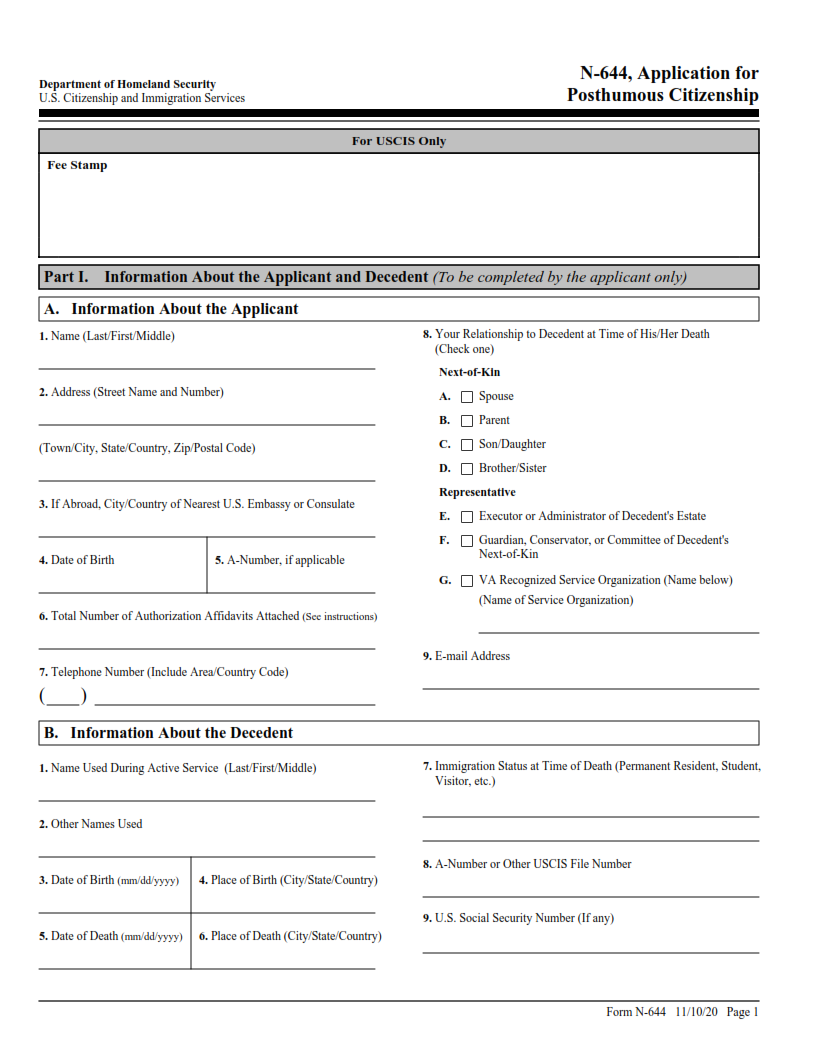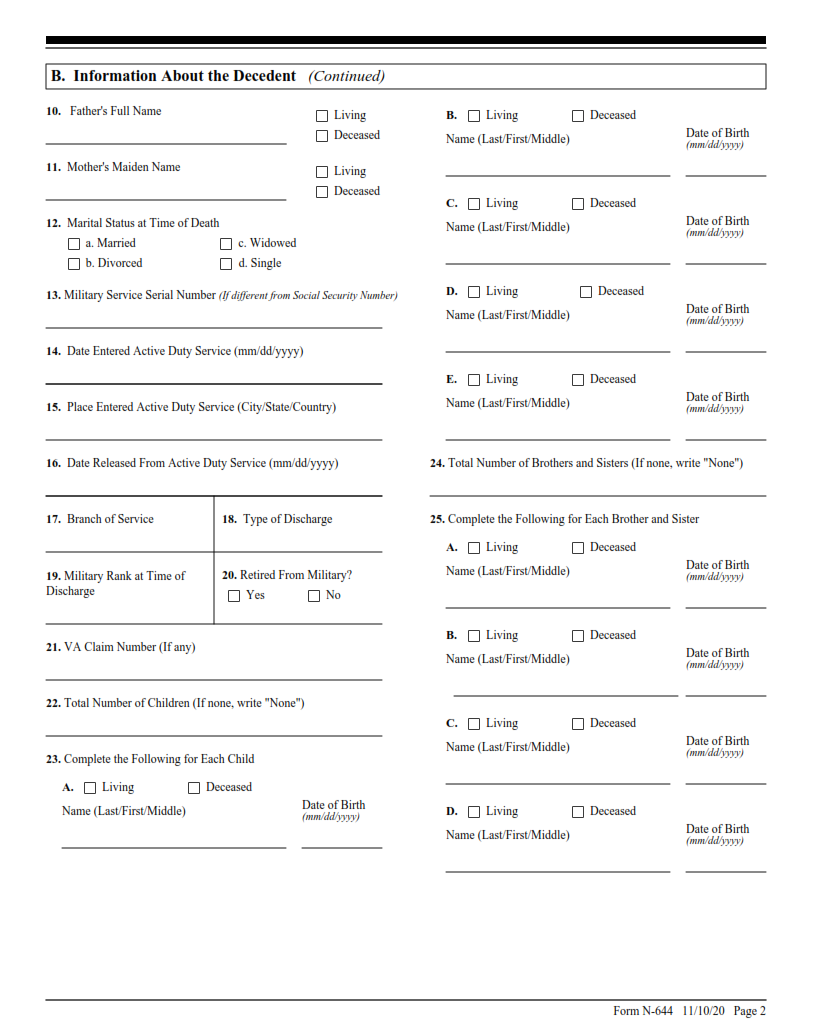FINDERDOC.COM – N-644 Form – Application for Posthumous Citizenship – The N-644 Form, Application for Posthumous Citizenship, is a unique form issued by the United States Citizenship and Immigration Services (USCIS). This form allows family members to apply for posthumous citizenship on behalf of deceased relatives who were eligible but did not obtain U.S. citizenship during their lifetime. Posthumous citizenship is a special honor bestowed upon non-citizens who have made significant contributions to the United States or its military forces. By filling out the N-644 Form, families can ensure that their loved ones are granted permanent residence in the United States after death.
Download N-644 Form – Application for Posthumous Citizenship
| Form Number | N-644 Form |
| Form Title | Application for Posthumous Citizenship |
| File Size | 134 KB |
| Form By | USCIS Forms |
What is an N-644 Form?
The N-644 Form is an application used by individuals who are seeking posthumous citizenship for a deceased relative. The form is filled out by the executor of the estate or another eligible family member, and is used to provide evidence that the deceased person was a United States citizen.
In order to be approved for posthumous citizenship, applicants must provide proof of identity, such as a birth certificate or naturalization papers; proof of residence; and proof that the individual has met all eligibility requirements for U.S. citizenship. This can include service in the armed forces or completion of naturalization proceedings before their death.
Once completed, the N-644 Form should be submitted to U.S Citizenship and Immigration Services (USCIS) along with other supporting documents such as affidavits from witnesses or copies of passport applications.
What is the Purpose of the N-644 Form?
The N-644 Form is an application for posthumous citizenship, which gives the deceased person U.S. citizenship at death. This form is typically used when someone dies before they can complete the naturalization process or if a family member wants to apply for posthumous citizenship on behalf of their deceased relative.
The purpose of this form is to recognize the loyalty and service to the United States that was demonstrated by the deceased individual while they were alive. By granting them posthumous citizenship, this shows that their loyalty and commitment has been acknowledged by their country even after their passing. In addition, it ensures that any surviving family members are eligible to receive certain benefits such as Social Security payments or veteran’s benefits in cases where the deceased was a veteran of the armed forces.
Where Can I Find an N-644 Form?
The N-644 form is an application for posthumous citizenship, allowing a deceased individual to become a United States citizen. This form can be found on the U.S. Citizenship and Immigration Services (USCIS) website or by visiting the nearest USCIS office.
The N-644 form must be completed in full and submitted along with various supporting documents, such as proof of death, birth certificate, marriage license and other documentation based on the individual’s circumstances. All documents must be originals or certified copies issued by the custodian of records. The instructions that accompany the N-644 Form explain what type of evidence should be included with each application.
Once all required materials have been gathered and submitted along with the completed N-644 Form, USCIS will review your application to determine if it qualifies for posthumous citizenship status under U.
N-644 Form – Application for Posthumous Citizenship
The N-644 Form is a document used to request posthumous citizenship for an individual who has died in the United States or at a U.S. military base overseas. This application form is for individuals who were not already U.S. citizens but would have been eligible if they had lived long enough to complete the naturalization process. The application must be filed by an immediate family member, such as a spouse, parent, child or sibling of the deceased person, and typically includes documents verifying their relationship to the deceased as well as death certificates and service records (if applicable).
This form can provide closure and honor for families of those who died in service to the United States by bestowing upon them full rights and privileges that come with American citizenship posthumously.
N-644 Form Example

